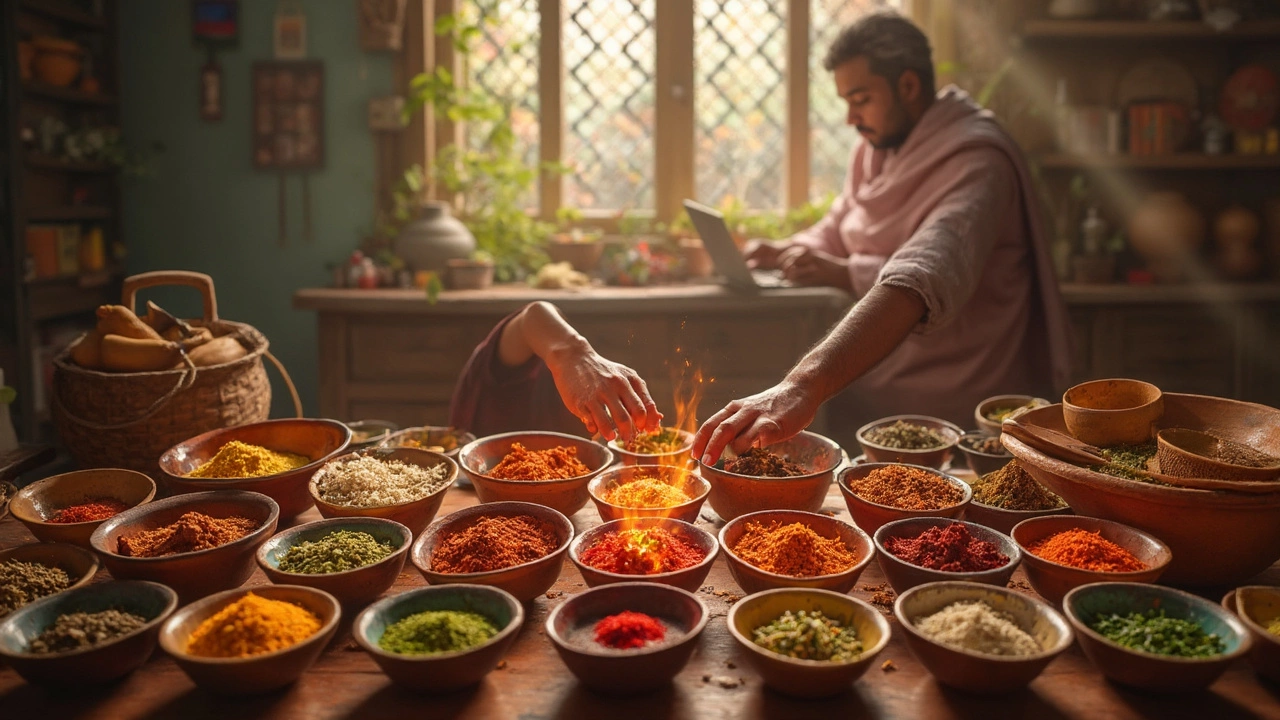Herb Combinations – What Works and What Doesn’t
People love mixing herbs to boost flavor, health benefits, or to follow traditional recipes. While the right blend can enhance digestion, immunity, or stress relief, the wrong mix may cause side effects or even toxicity. Understanding how herbs interact helps you enjoy the benefits without the hidden dangers.
Most herbal interactions happen because of shared active compounds that amplify or block each other’s effects. For example, two strong diuretics taken together can lead to dehydration, while a calming herb paired with a stimulant may cancel out the desired result. Checking ingredient lists and dosages before you combine herbs is a simple habit that saves trouble.
Common Safe Pairings
Many Ayurvedic and Indian herbal traditions already test combinations for safety. Here are a few that consistently show positive outcomes:
- Turmeric + Black Pepper: Piperine in black pepper boosts curcumin absorption, making the anti‑inflammatory effect stronger.
- Ginger + Lemon: Both aid digestion and together they soothe nausea without over‑stimulating the stomach.
- Ashwagandha + Holy Basil (Tulsi): Ashwagandha supports stress adaptation while Tulsi adds antioxidant protection, creating a balanced adaptogen blend.
- Licorice + Fennel: Licorice’s soothing effect on the gut pairs well with fennel’s carminative action, helping with gas and heartburn.
These mixes have been used for generations and research backs up their safety when used at recommended doses. Stick to the traditional ratios or follow manufacturer guidelines for best results.
Red Flags: Toxic Mixes to Avoid
Some herb pairings can raise heart rate, interfere with blood clotting, or stress the liver. Watch out for these common pitfalls:
- St. John’s Wort + Any Sedative: St. John’s Wort boosts metabolism of many drugs, which can reduce the sedative’s effect and cause sudden wakefulness.
- Ginseng + Caffeine‑Rich Herbs (Guarana, Yerba Mate): The combo can spike blood pressure and cause jitteriness, especially in people sensitive to stimulants.
- Fenugreek + Anticoagulants (Warfarin, Aspirin): Fenugreek may increase bleeding risk by thinning blood further.
- High‑Dose Amla + Iron Supplements: Vitamin C in amla enhances iron absorption, which can lead to iron overload if you already take iron pills.
If you’re unsure about a mix, pause and research the individual herbs’ active constituents. A quick check on a reputable herbal database or a chat with a qualified practitioner can prevent unwanted side effects.
Finally, keep a simple log of what you take, how much, and when. This habit makes it easier to spot patterns if you experience any unusual symptoms. Remember, the goal is to enjoy the natural power of herbs without compromising safety.
By respecting traditional pairings, checking for interactions, and staying within recommended doses, you can create herb combos that support your health goals and stay clear of toxic surprises.

Herbs That Shouldn't Be Mixed: What Herbs Cannot Be Together?
Mixing herbs can sometimes backfire, causing side effects or making each other less effective. This article explains which herbs shouldn't be taken together and why. You'll learn about real risks, not just rumors, plus practical tips for safe herbal use. Discover ways to avoid unwanted reactions and how to enjoy the benefits of herbal supplements with more confidence. Safeguard your health without giving up on your favorite natural remedies.




